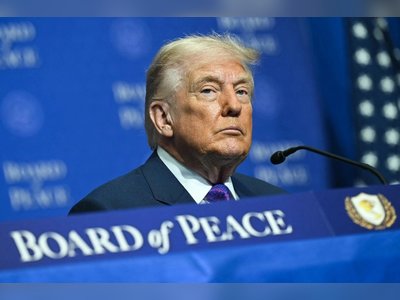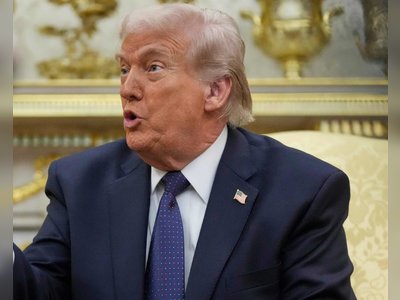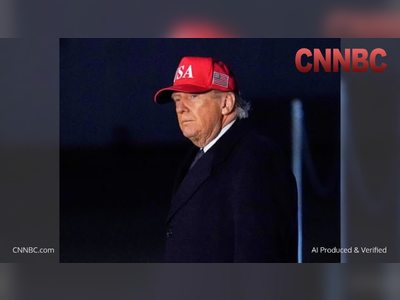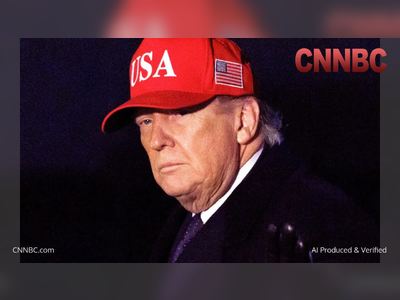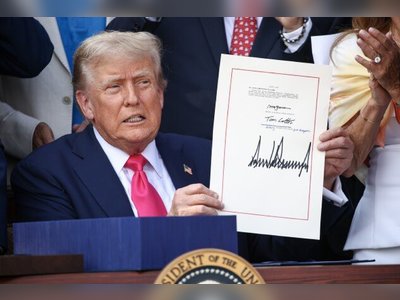
US Financial Regulatory Battle: Elon Musk Sued for Alleged Securities Violations on Twitter Stock Purchase
Securities and Exchange Commission accuses Musk of delaying disclosure to gain financial advantage in 2022 Twitter acquisition.
In a high-profile legal dispute, the United States Securities and Exchange Commission (SEC) has brought a lawsuit against Elon Musk, accusing the billionaire CEO of failing to adhere to securities laws during his acquisition of Twitter stock prior to his ambitious takeover of the social media giant.
Musk, who embarked on the acquisition journey in early 2022 and completed the $44 billion purchase in October of the same year, finds himself embroiled in a legal conflict that echoes previous entanglements with the US financial regulatory body.
Filed late Tuesday in a federal court in Washington, DC, the SEC's suit contends that Musk neglected to publicly disclose his acquisition of a 5% ownership stake in Twitter within the regulatory timeline.
By purportedly delaying this mandatory disclosure by 11 days, the SEC argues, Musk purchased additional shares at prices that were 'artificially low,' effectively underpaying by at least $150 million.
Musk's legal representative, Alex Spiro, responded to the lawsuit by dismissing it as an overreach on the part of the SEC, labeling the lawsuit a 'sham.' Spiro contends that the accusations stem from an 'administrative failure' to file a form and reiterates Musk's stance of having committed no wrongdoing.
The SEC's scrutiny of Musk is not unprecedented.
It comes on the heels of previous investigations, including those aimed at suspected securities fraud and insider trading violations involving Musk and his brother, Kimbal Musk, connected to their dealings in Tesla stock.
Tesla, another pillar of Musk's extensive business portfolio, provides a backdrop of familiarity to the contentious relationship between the entrepreneur and the SEC.
Musk's contentious acquisition of Twitter, which he subsequently rebranded as 'X,' saw him owning more than 9% of Twitter shares by the time he made the delayed disclosure.
The immediate aftermath of this disclosure saw the company's stock price surge over 27%, highlighting the pecuniary impact of the timing of such announcements.
This detail forms a crucial part of the SEC’s case, as it asserts Musk's actions constituted a breach that undercut other shareholders and the market’s equitable functioning.
Beyond these legal proceedings, Musk has continued to garner political connections, including ties with former US President Donald Trump.
Such relationships are reflected in Musk’s recent financial support of Trump’s re-election campaign and his appointment as a leader of a proposed 'department of government efficiency'—a move that has further intertwined technological entrepreneurship with political discourse.
While Gary Gensler, the current chair of the SEC, prepares to step down next January, the continuity of the lawsuit under future administration remains uncertain.
Regardless, the unfolding legal saga is a reminder of the complexities at the intersection of innovation, regulation, and corporate governance in the digital age.
Musk, who embarked on the acquisition journey in early 2022 and completed the $44 billion purchase in October of the same year, finds himself embroiled in a legal conflict that echoes previous entanglements with the US financial regulatory body.
Filed late Tuesday in a federal court in Washington, DC, the SEC's suit contends that Musk neglected to publicly disclose his acquisition of a 5% ownership stake in Twitter within the regulatory timeline.
By purportedly delaying this mandatory disclosure by 11 days, the SEC argues, Musk purchased additional shares at prices that were 'artificially low,' effectively underpaying by at least $150 million.
Musk's legal representative, Alex Spiro, responded to the lawsuit by dismissing it as an overreach on the part of the SEC, labeling the lawsuit a 'sham.' Spiro contends that the accusations stem from an 'administrative failure' to file a form and reiterates Musk's stance of having committed no wrongdoing.
The SEC's scrutiny of Musk is not unprecedented.
It comes on the heels of previous investigations, including those aimed at suspected securities fraud and insider trading violations involving Musk and his brother, Kimbal Musk, connected to their dealings in Tesla stock.
Tesla, another pillar of Musk's extensive business portfolio, provides a backdrop of familiarity to the contentious relationship between the entrepreneur and the SEC.
Musk's contentious acquisition of Twitter, which he subsequently rebranded as 'X,' saw him owning more than 9% of Twitter shares by the time he made the delayed disclosure.
The immediate aftermath of this disclosure saw the company's stock price surge over 27%, highlighting the pecuniary impact of the timing of such announcements.
This detail forms a crucial part of the SEC’s case, as it asserts Musk's actions constituted a breach that undercut other shareholders and the market’s equitable functioning.
Beyond these legal proceedings, Musk has continued to garner political connections, including ties with former US President Donald Trump.
Such relationships are reflected in Musk’s recent financial support of Trump’s re-election campaign and his appointment as a leader of a proposed 'department of government efficiency'—a move that has further intertwined technological entrepreneurship with political discourse.
While Gary Gensler, the current chair of the SEC, prepares to step down next January, the continuity of the lawsuit under future administration remains uncertain.
Regardless, the unfolding legal saga is a reminder of the complexities at the intersection of innovation, regulation, and corporate governance in the digital age.




